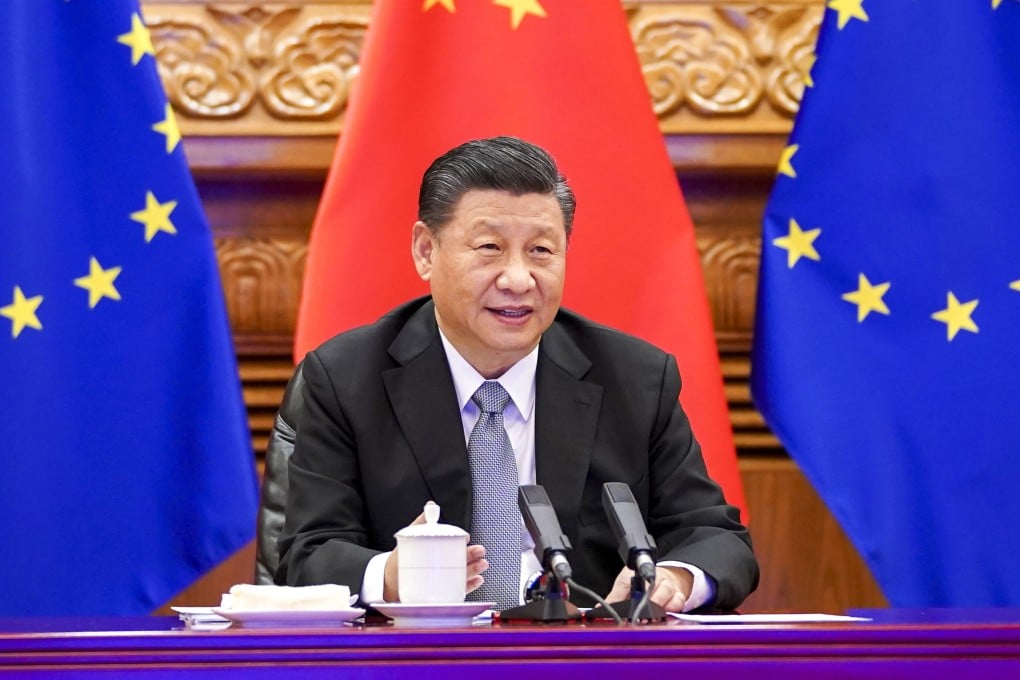China-EU investment deal: smaller countries question whether France and Germany have their best interests at heart
- One diplomat says that role played by Angela Merkel and Emmanuel Macron risks undermining the bloc’s role in dealing with Beijing
- Companies from the EU’s big two are most heavily invested in China, while other countries would prefer to concentrate on boosting domestic economies

German Chancellor Angela Merkel and French President Emmanuel Macron’s role in sealing a landmark investment deal between the European Union and China has raised questions in some other member states about whether their interests are being addressed.
An initial draft of the Comprehensive Agreement on Investment (CAI) was approved by the two sides on December 30, narrowly hitting the target set by the two sides of finishing seven years of negotiation before the end of 2020.
The final talks held over video link involved China’s President Xi Jinping, European Council President Charles Michel and Commission President Ursula von der Leyen.
They were also joined by Merkel on the grounds that her country held the EU’s six-month rotating presidency. The last-minute addition of Macron came as a surprise to many, however.
Germany accounts for nearly half of all European investment in China, while France has the second greatest European business presence there.
There are 5,200 German companies operating in China, with a total of €76 billion (US$92 billion) in direct investment, according to the latest figures from German industrial lobby BDI.